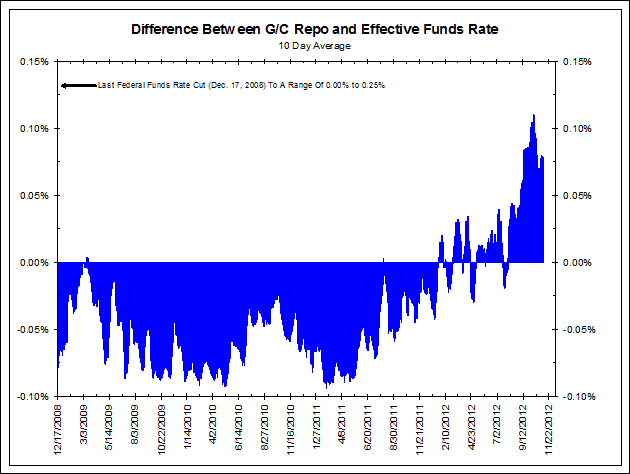• Reuters – Fitch: No Fiscal honeymoon for president Obama
The newly re-elected US President Barack Obama will need to quickly secure agreement on avoiding the ‘fiscal cliff’ and raising the debt ceiling following Tuesday’s elections, Fitch Ratings says. The economic policy challenge facing the President is to put in place a credible deficit-reduction plan necessary to underpin economic recovery and confidence in the full faith and credit of the US. Resolution of these fiscal policy choices would likely result in the US retaining its ‘AAA’ status from Fitch. As reflected in the Negative Outlook on the rating, failure to avoid the fiscal cliff and raise the debt ceiling in a timely manner as well as securing agreement on credible deficit reduction would likely result in a rating downgrade in 2013…On current projections, the Treasury Secretary will likely have to implement extraordinary measures by year-end to maintain borrowing capacity under the current debt ceiling of USD16.394trn. Failure yet again to reach agreement on raising the debt ceiling in a timely manner – not Fitch’s expectation – would undermine confidence in the United States as a reliable borrower and thus its ‘AAA’ status, prompting a formal review of the US sovereign rating.
Comment:
Going into this week’s election, the general consensus overwhelmingly believed the fiscal cliff would not be an issue. We agreed. However, yesterday’s selloff in equities may be an indication of doubt. Without making too much of one day’s selloff, yesterday’s slide could be a sign that the market’s are becoming increasingly concerned about the ability of elected officials to come to some sort of agreement (more on this below).
Now that the president has been re-elected and the divided status quo remains in Congress, both sides of the aisle must negotiate an agreement before the automatic tax increases and spending cuts take place at year-end. As the story above points out, both Fitch and Moody’s have expressed failure to do so will likely result in a downgrade of U.S. debt.
One other market that may be indicating some concern over the fiscal cliff and the potential for a debt downgrade is the repo market. The chart below shows the 10-day moving averages of the overnight general collateral government repo rate in green and the federal funds effective rate in blue. Because the GC rate is a secured rate, it has less credit risk and generally trades at a lower yield the unsecured federal funds rate. However, this has not been the case since August.
So why would an unsecured rate have a lower yield than a secured loan? Normally such an inversion would be arbitraged away. In talking to some of the dealer desks, many pointed to the new capital/leverage restraints of the past several years as the main reason they could not capitalize on such an opportunity. Without being able to expand their balance sheets, their cash was already tied up elsewhere. Others pointed to the fed funds market as being a bit dysfunctional. While fed funds volume prior to the crisis normally reached $250 billion a day, current volume is closer to $20 billion a day. Since the banks/dealers have no need to raise funds, the GSEs are the only real participants left in the fed funds market.
While both of these explanations make sense, they have largely been true since the crisis hit full stride in 2008. The GC rate has only materially traded above the fed funds in just the last few months. We believe this latest inversion is yet another market signaling concern over the fiscal cliff.
How A US Debt Downgrade Matters
If Washington fails to come to an agreement on the debt ceiling and U.S. debt gets downgraded, the contracts underlying the majority of repo transactions would basically need to be rewritten. As of now these contracts require AAA Treasury securities as collateral, so a downgrade by a second rating agency (S&P already downgraded U.S. debt to AA+) would be problematic as the majority rating would no longer be AAA.
We believe this may be one reason the GC rate is trading higher than the effective federal funds rate. With both Moody’s and Fitch warning of the potential for a U.S. debt downgrade over the past several months, the GC market is in a bit of flux. If there is no such thing as AAA U.S. debt in the near future, how will these repo contracts be handled?
In the end all of this will be sorted out. But until it does, and everyone understands how the new rules work, secured repo transactions now trade with enough uncertainty that they trade at a higher yield than unsecured fed funds transactions.
Source: Bianco Research




What's been said:
Discussions found on the web: